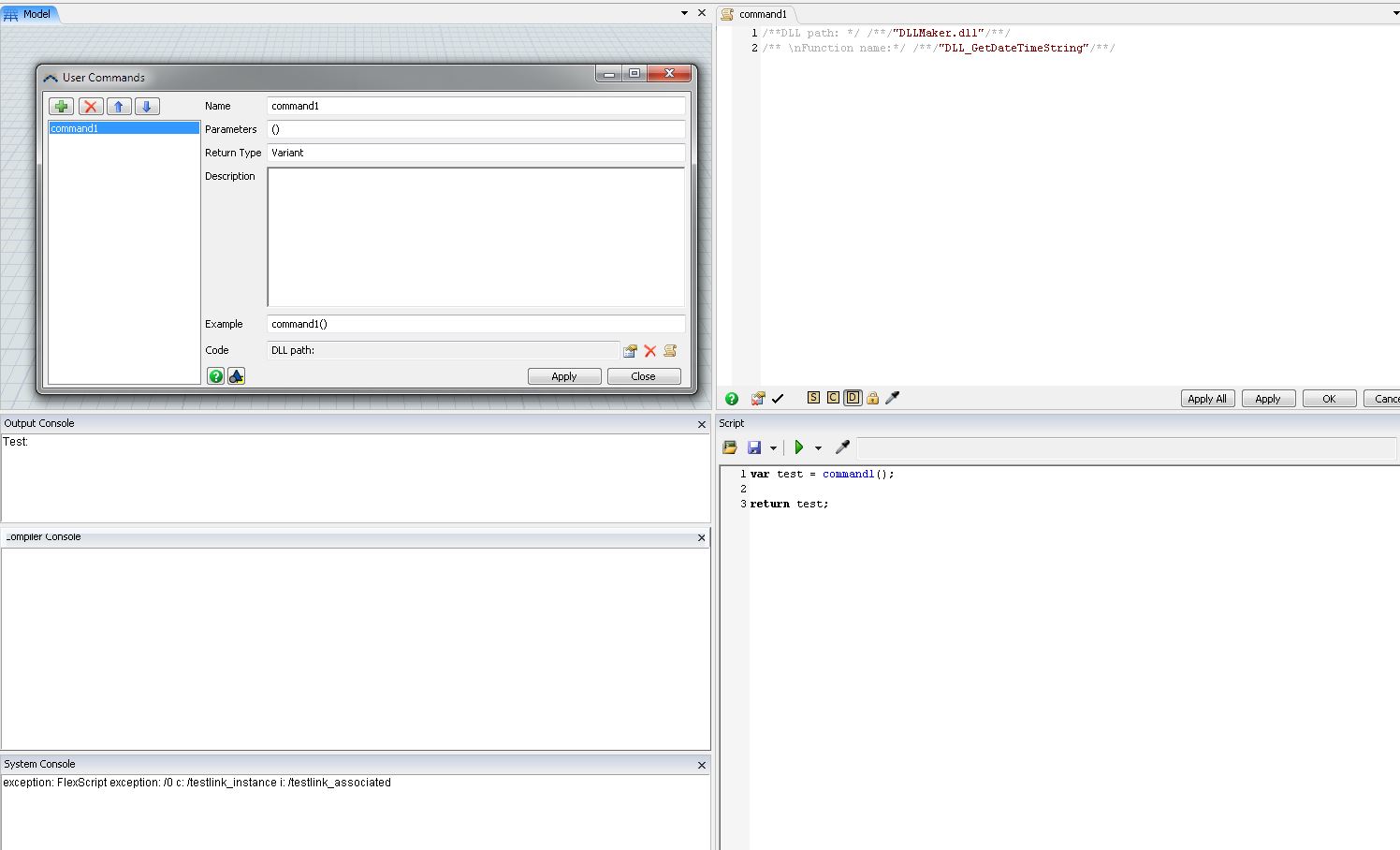Hi,
We have a dll that returns a string from a custom dll built with the dll-maker project that has worked fine until now changing to the FlexSim 2017 version. The .zip file is attached that contains the dll code and the model file that I use to use the dll.
I am trying to follow the instructions here but I cannot get it to work. The code in the dll is the following
and the code in the model just uses a simple .dll linked user command that is defined to return a Variant data type. The dll linked function writes to the output console in FlexSim, but I cannot get the returned string into FlexSim. I get the exception seen in the System console in the image below.
Any clue on what is happening here?
Thank you!
Kind regards,
Axel


